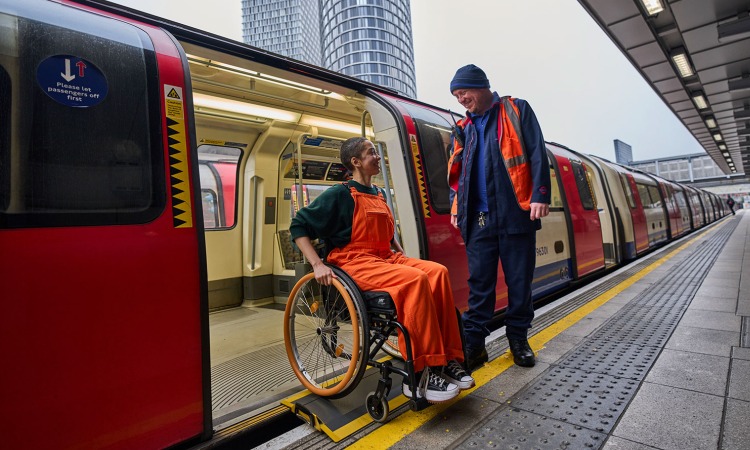
Photo: TfL
TfL launches new plan to make transport more accessible
02 February 2024
by Christopher Carey
Transport for London (TfL) has published a new customer framework to help create a more accessible and inclusive bus and Tube network.
The plan – Equity in Motion – commits to more than 80 new actions, including boosting the number of step-free access Tube stations and the rollout of new mini-ramps to help customers access trains.
“Our vision is a London where everyone can move around the city safely, inclusively and sustainably, and access to public transport is a fundamental component in making this happen,” said Alex Williams, Chief Customer and Strategy Officer at TfL.
“While we have taken steps to make our network more accessible, we know that much more needs to be done.
“Equity in Motion draws on the experiences and viewpoints of a range of Londoners, prioritising the areas they want to see improved to create tangible actions that drive forward change and help make London a truly fair city.”
Step-free access
One of the primary aims will be to increase the proportion of step-free stations on London’s Underground from a third to half.
More than 45 mini ramps are now being introduced across the Tube network and this follows a TfL trial in 2022 on the Jubilee line – with the operator finding that 63 percent of respondents would be more likely to travel with this device.
The plan also commits to creating more dedicated spaces for wheelchair users on the Tube, and the installation of specific fabric patterns – called moquettes – to its 1,000 Routemaster buses by 2025 to more clearly outline which seats are prioritised for the elderly, disabled and pregnant.
New research will also be carried out to understand the needs of a range of different communities across the city, along with the creation of a new inclusive Design Centre of Excellence and a review of the operator’s approach to translating communications into different languages, including British Sign Language.
“These new commitments are really encouraging for the 1.2 million Londoners who are disabled, and are a positive approach to addressing some of the most significant barriers we face when getting around the capital,” said Emma Vogelmann, Policy and Public Affairs Manager at disability campaign group Transport for All.
“Access barriers for travelling in London include a lack of step-free stations, few priority seats on buses, and missing or inaccessible travel information – all of which can conspire to making our journeys longer or more painful, or even stop us getting beyond the front door.
“Coproducing schemes with the disabled community will be vital to ensure the measures in this plan can bring about real change.”
Image:TfL







